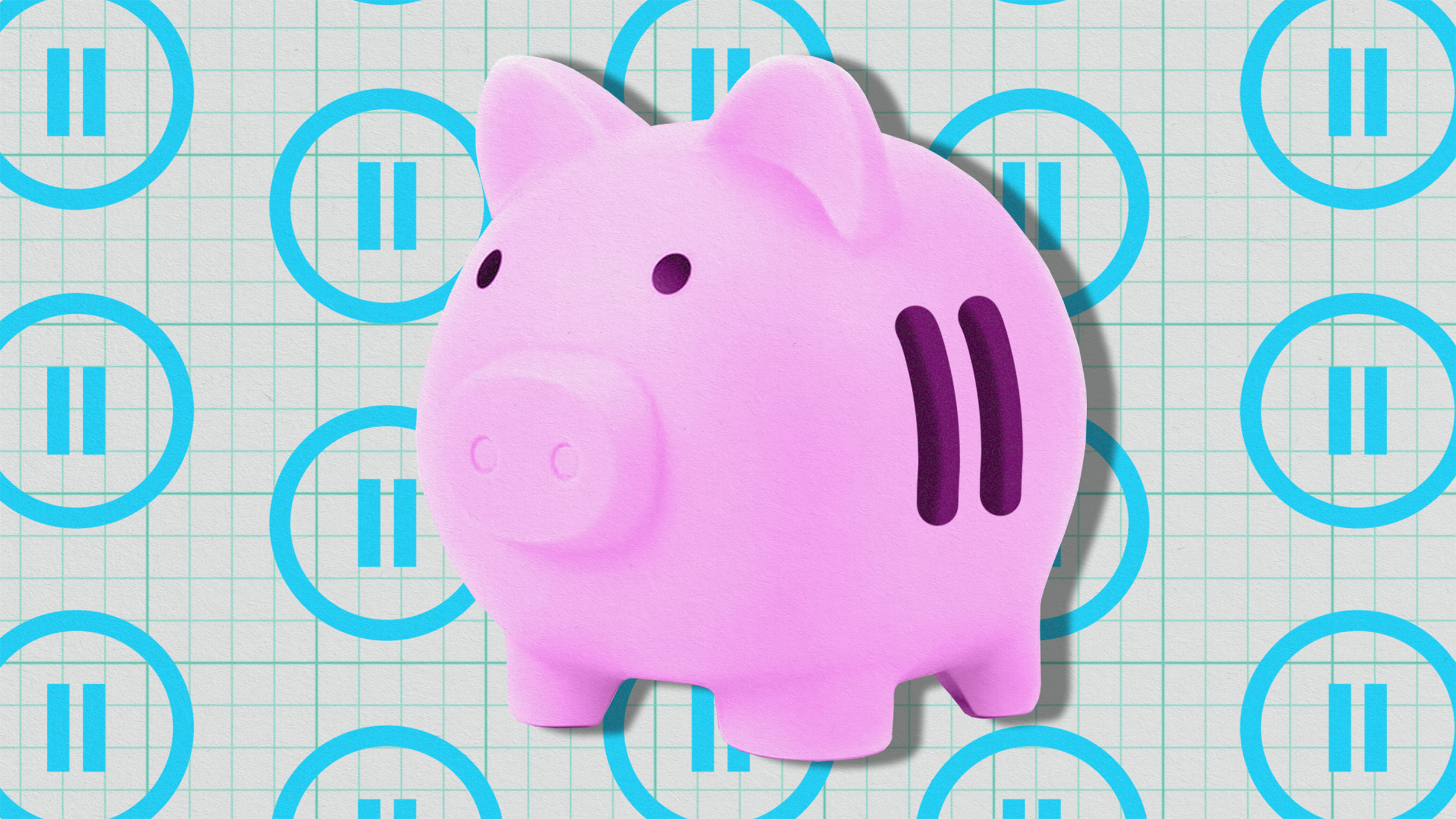Can I pause my pension contributions - what happens if I do?
A 5 minute read

With the cost of living increasing the way it is, many people are finding it harder and harder to scrape by.
Skipping or pausing pension contributions – at least for a while – can look like an easy way to put more money into your household budget now. And for some people, there will be no question. Essentials like food and heating are going to come before pension savings.
But as champions of pensions and the difference they can make to people’s lives, we want to make sure you have all the facts, so you can make more informed decisions.
Let’s have a look at the possible long-term effect skipping pension contributions could have on pension savings. In this example, we’re focusing on defined contribution pensions:
Jake’s choices
Jake is 25. He earns £29,000 a year and pays pension contributions of £75 a month into his defined contribution pension.
- If he skips pension contributions for a year, he could have £4,600 less in his pension savings in future.
- Skipping contributions for two years could mean £9,100 less in his pension savings in the future.
- And skipping contributions for three years increases the gap in his pension savings to £13,600 in the future.
(To work this out we assumed Jake’s salary and pension contributions increase by 3% a year in future, and that investment growth on his pension savings is 4.25% a year. Source: Aegon).
Why does it make such a difference?
How can skipping pension contributions, even for a year, make so much difference to future pension savings?
Let’s take a closer look at the things that help pension savings build up:
1. Contributions from your employer
One of the good things about a workplace pension is that your employer pays into it as well as you. Some employers may even pay in more than the minimum and offer matching contributions, where they put in more if you put in more, up to a limit.
If you stop paying into your pension savings, your employer’s contributions will also stop.
2. Tax relief from the Government
Another good thing about pension saving is the extra money you get from the Government, called tax relief.
You don’t pay income tax on pension contributions – and some of the tax you would have paid goes into your pension savings instead. If you pay income tax at the basic rate of 20%, for every £100 you put into your pension savings, the Government adds around another £20.
But – you have to pay the pension contributions to get the tax relief. If you stop your contributions, that extra money stops too.
3. Compounding builds up faster
Money in a pension is invested with the aim to help it grow. When your investments grow, you earn investment returns on your pension savings. You also earn returns on any previous returns you’ve earned. So when you save money, you earn returns on your savings and on the previous returns you’ve built up. This is called compounding and it can make a big difference to the amount of your pension savings over time.
Stopping your pension contributions doesn’t stop compounding, as you’ll still carry on earning returns on the money you’ve saved so far. But it does slow it down. Your pension savings won’t build up as fast as if you were still contributing.
It is important to remember, investing does carry some risk and the value of your investments can go down as well as up.
If I want to pause my contributions, what happens to the money I’ve built up so far?
If you decide to pause paying into the workplace pension within a month of being enrolled, any payments you’ve made into your pension pot during this time will be refunded to you. After this time, you can still opt to stop paying into the pension but any payments you’ve made will stay invested in your pension pot for retirement rather than be refunded. You’ll be able to access this money from age 55 (or age 57 from 2028).
Re-enrolment
To help you build up a pot of money for your future, as a safety net, every three years your employer must put you back into the workplace pension if you still qualify - even if you’ve chosen to stop contributing before. This is called re-enrolment.
Retirement vs the here and now
As you can see, skipping pension contributions is a trade-off between money to use now and more money when you retire.
Maybe retirement seems like a long way off and the here and now is what matters more. And for some people, skipping pension contributions will be a better choice than skipping other things.
But we hope we’ve helped you understand how much difference carrying on with pension contributions can make to your future pension savings, so you can make the right decisions for you.
DO NOT EDIT THIS BOX UNLESS YOU'RE NOEL

